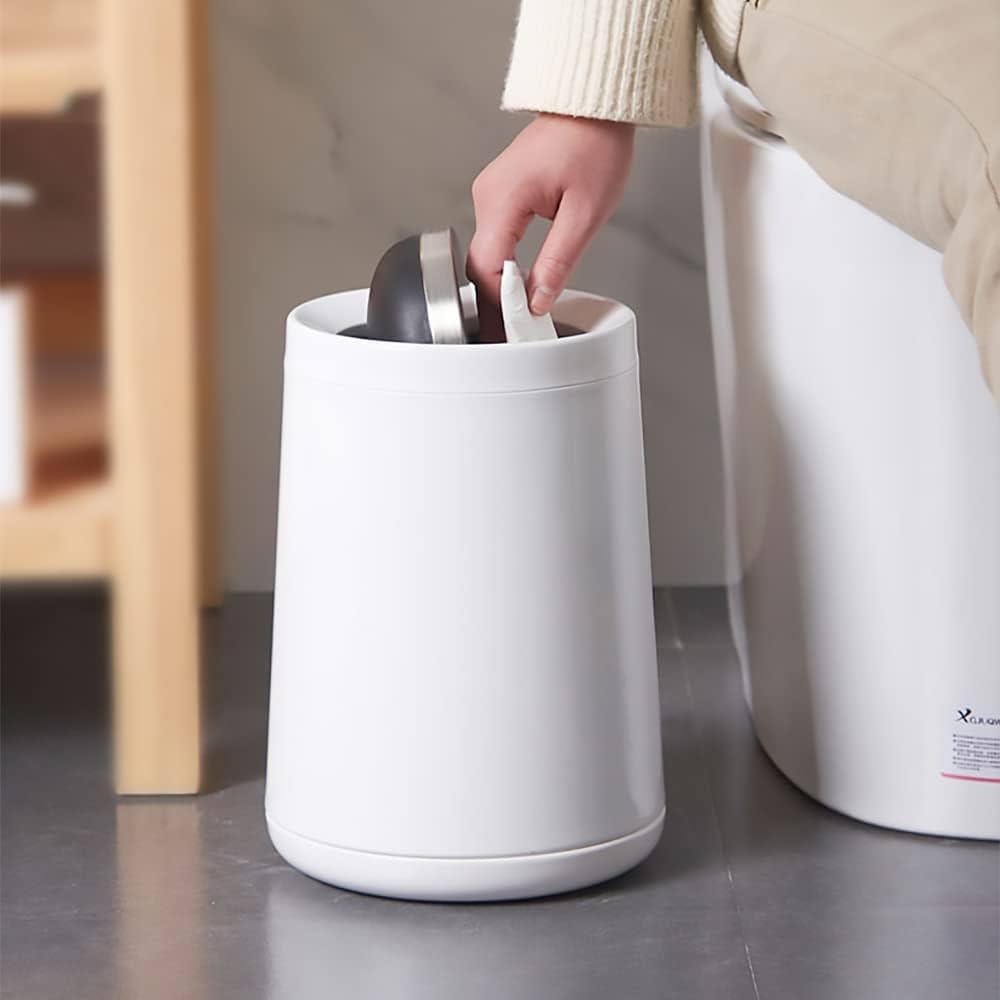Plastic trash cans are popular for several reasons. Firstly, they are lightweight, making them easy to maneuver and transport, which is particularly beneficial in settings where trash bins need frequent relocation or emptying. Plastic bins are also resistant to rust and corrosion, making them suitable for both indoor and outdoor use without the risk of deterioration over time. This durability extends to their resistance to dents and scratches, ensuring a longer lifespan compared to metal bins which can dent more easily. Additionally, plastic bins are often more affordable initially, making them a cost-effective choice for businesses looking to manage their expenses. However, plastic trash cans do have their drawbacks. While they are generally durable, extreme temperatures can cause them to become brittle or warp, potentially compromising their integrity. UV exposure can also lead to fading and discoloration over time, impacting their aesthetic appeal. Moreover, plastic bins may not offer the same level of security against vandalism or fire hazards as their metal counterparts, which could be a concern in certain environments.

On the other hand, metal trash cans offer distinct advantages that make them a preferred choice for many commercial settings. Metal bins, typically made from materials like stainless steel or galvanized steel, and are known for their robustness and resilience. They are highly resistant to impacts, making them ideal for high-traffic areas where durability is paramount. Metal bins also provide superior security against fire hazards, as they are non-combustible and can contain flames better than plastic bins. Furthermore, metal trash cans are less susceptible to weather conditions and temperature extremes. They maintain their structural integrity in hot and cold environments alike, ensuring reliable performance throughout the year. This durability often translates into a longer service life, reducing the frequency of replacement and maintenance costs over time. Additionally, metal bins are generally easier to clean and maintain hygiene standards, which is crucial in environments where sanitation is a priority.
Despite these benefits, metal trash cans come with own set of considerations. They tend to be heavier than plastic bins, which can make them more difficult to move and handle, especially when fully loaded. This weight also contributes to their higher initial cost compared to plastic bins, making them a larger investment upfront. Moreover, while metal bins are resistant to rust, they can still be susceptible to corrosion if not properly maintained or if they sustain damage that compromises their protective coatings. In conclusion, the choice between plastic and metal commercial trash cans depends largely on the specific needs and conditions of the environment in which they will be used. Plastic bins offer affordability, lightweight convenience, and resistance to corrosion, albeit with some vulnerability to extreme conditions and potential security concerns. Metal bins, on the other hand, provide unmatched durability, security against fire hazards, and longevity, though they are heavier and more expensive. Understanding these pros and cons allows businesses to make an informed decision based on their priorities for functionality, durability, and budgetary constraints.